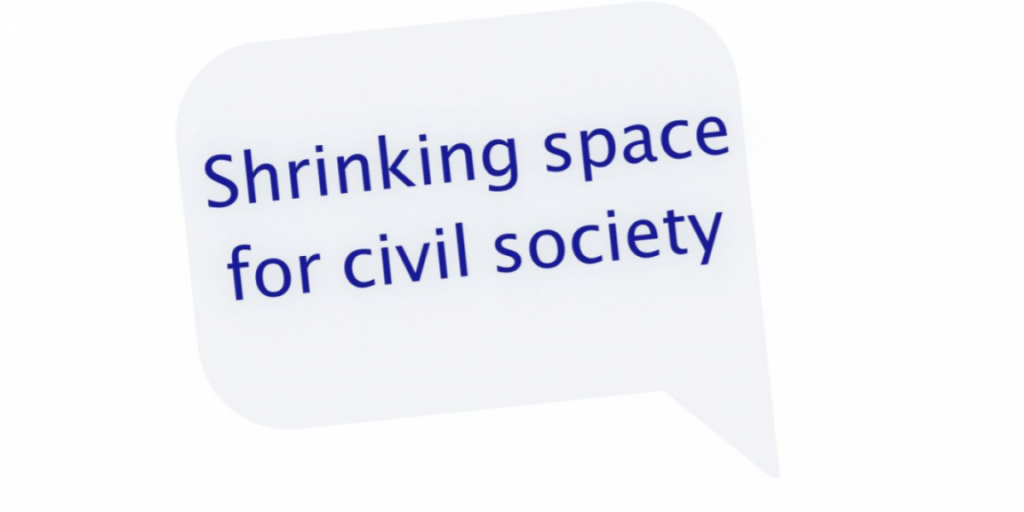Non-profit bill undermines civil society
Transparency of Civil Society Organisations Act (Wtmo) is not supposed to happen
In 2020, the government introduced a bill aimed at combating unwanted foreign funding of non-profit organisations (civil society organisations). Privacy First endorses the need to combat undermining the democratic rule of law, but believes the bill is inappropriate for this purpose.
Due to numerous objections from civil society, the treatment of this bill has been stalled for years. In the new coalition agreement, it has been mentioned that the discussion will continue. As it has now been announced that the bill will be debated in plenary in the Lower House next week, Privacy First saw fit to send a fire letter to the responsible committee.

New duty of administration for all
The bill affects all civil society organisations (foundations and associations):
- The proposal includes a new administration duty for all civil society organisations, which imposes an additional burden on those organisations without demonstrating that the duty contributes to the goal (combating undermining).
- The proposal includes a general obligation to administer donors' personal data and a long-term retention obligation, which is risky for those donors (privacy, cybersecurity). An additional factor is that not all charities comply correctly with the AVG and personal data is already leaking on a large scale and can be misused by criminals and other malicious parties.
- The proposal will discourage volunteering for CSOs, as only 'members' will be allowed to volunteer without it being classified as a 'donation in kind'. In-kind donations have to be administered and valued by CSOs, which will deter volunteers.
Specific powers not substantiated
Furthermore, the proposal includes specific powers for the government targeting organisations deemed 'suspicious', powers whose necessity has not been substantiated:
- The mayor, the Public Prosecutor's Office, the Minister of Justice, the Tax Authority, DNB, AFM, Bureau of Financial Supervision and a large number of other government agencies may request donor data from civil society organisations, without it being clear what connection there is between the governmental tasks of these agencies and donor data to be requested. The body requesting the data may share the data with a large number of other bodies. In case of non-cooperation by the CSO, board bans may be imposed on directors, among others. There is no rationale as to why the powers of the relevant government agencies would be insufficient under the current regulations.
- In a separate article, the public prosecutor is given the ability to impose far-reaching obligations on an undermining organisation through the courts, when there is already a legal provision allowing the public prosecutor to ban and dissolve such an organisation. Privacy First does not understand why the latter provision is not amended.
According to Privacy First, the specific powers do not meet the requirements of the rule of law imposed on legislation by the AVG and the European Charter of Fundamental Rights, among others.
Filing obligation for foundations
Finally, the proposal includes an obligation for foundations to file their balance sheet and statement of income and expenditure with the Trade Register. According to the current text, those documents can then be viewed by anyone, while they may contain confidential information. Privacy First recommends amending the text of the proposed provision.
It must be different
Privacy First is unpleasantly struck by the suggestion made in the parliamentary papers that non-profit organisations would cause widespread undermining. It is high time there was more appreciation for the activities of the many foundations and associations active in the Netherlands. Furthermore, it is essential that the data protection rights of donors and volunteers are respected.
If measures against undermining organisations were needed, they should not affect the regular non-profit sector.
Interested parties can read Privacy First's full letter to the House of Representatives HERE read (pdf).
Update 3 June 2024:
The debate on the Wtmo in the Lower House now seems to be deferred until after the summer recess.
This article was also published at PONT Data & Privacy, see Non-profit bill undermines civil society - PONT Data&Privacy (privacy-web.co.uk), and at Trade magazine Fundraising, see Privacy First: 'Wtmo should not be there' - Trade magazine fundraising.
